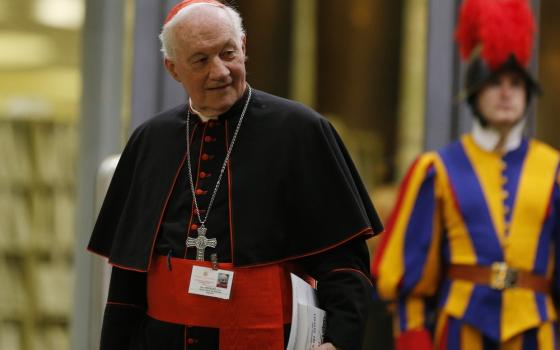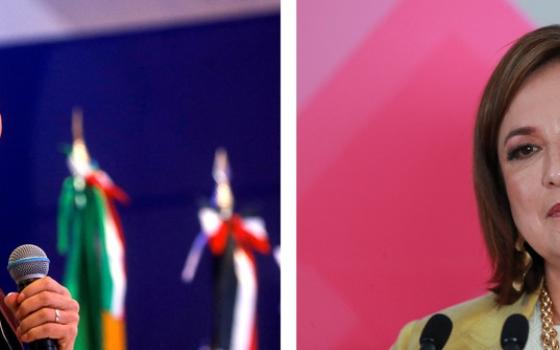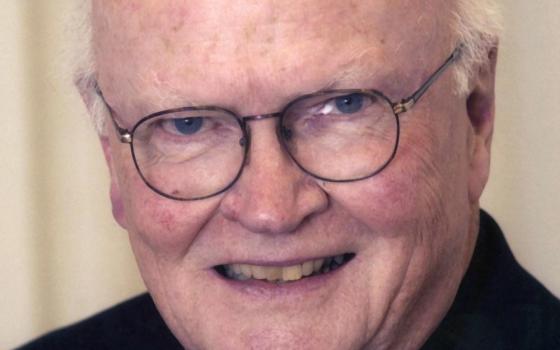Today, I will take a final look at Evangelii Gaudium, that is, for immediate purposes. The text is something to be kept at hand and read over and over again in the days, months and years ahead. But, Chapter 4, “The Social Dimension of Evangelization,” warrants special attention today, especially here in the United States where there are such strong counter-currents in the culture.
Pope Francis writes:
Reading the Scriptures also makes it clear that the Gospel is not merely about our personal relationship with God. Nor should our loving response to God be seen simply as an accumulation of small personal gestures to individuals in need, a kind of “charity à la carte”, or a series of acts aimed solely at easing our conscience. The Gospel is about the kingdom of God (cf. Lk 4:43);it is about loving God who reigns in our world. To the extent that he reigns within us, the life of society will be a setting for universal fraternity, justice, peace and dignity. (#180)
Here, in starkest terms, is the response to those who think that the essential role of the Christian in society is to accept the rules of the market, win at the competition those markets require, then dispense charity to those who have less. The line about “easing our conscience” demonstrates that Pope Francis has spent his fair share of time with rich folk. And, we can’t be satisfied with an unjust system that allows for personal charity: Social structures are themselves called to “be a setting for universal fraternity, justice, peace and dignity.”
As predicted, much of the criticism leveled at the pope the past couple of days has painted him as naïve about economic matters. I am not one of those the pope calls on the phone, but I think we all have enough of a sense of the man to know that he would plead guilty to the charge that he is not an economist. Indeed, the fact that this criticism is laid at his feet shows just how far down the slippery slope his critics are. How dare the pope not understand our economic science! How dare he ignore our charts, our data, out statistics! How naïve to suggest that our economic laws should conform to his religious vision! That is precisely his point: As a Christian, we cannot accept an economic system that results in such injustice, in which the few winners get richer and richer and the millions of losers get poorer and poorer. Such a system is unworthy of a Christian understanding of justice.
Francis, however, is after something deeper here too. Yes, injustice should set off alarm bells. But, what is wrong with modern capitalism is not just that the few winners are doing so well and the many losers are doing so poorly. It is that, in the Christian view of the world, no human being is a “loser.” A system that is predicated on there being winners and losers is wrong-headed not just when the differences between the two are extreme, as they are today. It is wrong-headed period. Humans, experienced through the culture of encounter the Gospel invites, are always winners: “To believe that the Son of God assumed our human flesh means that each human person has been taken up into the very heart of God” Pope Francis writes. (#178) Shame on those who treat their fellow man as if he has not been taken up into the very heart of God.
Yet, this is precisely what our modern economy dictates and demands. Not your average mom-and-pope store, at which the extended families help out, businesses that are integral parts of a community, businesses that pay a decent wage because their workers are also their neighbors. No, it is the financialized economy that demands profit at all cost and, critically, relegates religion to the realm of sentiment, privatizes it, and keeps it from posing a challenge. “Consequently, no one can demand that religion should be relegated to the inner sanctum of personal life, without influence on societal and national life, without concern for the soundness of civil institutions, without a right to offer an opinion on events affecting society. Who would claim to lock up in a church and silence the message of Saint Francis of Assisi or Blessed Teresa of Calcutta?” asks Pope Francis. (#183) And, when the pope, as a pastor, as a Christian, poses a challenge, he is called “naïve” and told he does not understand the economy.
It is not politic in the world of ecumenical dialogue to make the point, but I shall make it anyway. The world the modern, financialized economy has created bears a creepy resemblance to the soteriological vision of Calvin, does it not? The elect, predestined few flourish while the massa damnata burn in hell. And, there is nothing anyone can do about it. In Calvin’s views on salvation, it is predestination that leaves us helpless. In today’s world, it is the “economic laws” that leave us helpless and, as Pope Francis indicates, invite a “culture of indifference.” The pope is reminding us that we cannot be indifferent precisely because we are Christians called to evangelize.
This is the key point: Who cares if Pope Francis knows his economics? He knows that at the heart of the Gospel is good news for the poor. He did not need to consult a team of economists to write Evangelii Gaudium: His focus group consisted of only four people, Matthew, Mark, Luke and John. Just so, those who criticize him must find religious, not economic, reasons for their criticism. Otherwise, they have done what, in other contexts, they so often criticize contemporary culture for doing, privatizing religion, regulating religion to the personal, accepting, indeed facilitating the secularization of culture, in this case, the economic culture. And, indeed, because we are talking about economics, we might say that our latter day apologists for the market “fund and facilitate” the secularization of culture when they claim that Pope Francis has over-stepped the limits of his competence.
I found this passage illustrative of how the pope understands our call to serve the poor, and it exemplifies his earlier warnings against the Church becoming an NGO:
Our commitment does not consist exclusively in activities or programmes of promotion and assistance; what the Holy Spirit mobilizes is not an unruly activism, but above all an attentiveness which considers the other “in a certain sense as one with ourselves”.166 This loving attentiveness is the beginning of a true concern for their person which inspires me effectively to seek their good. This entails appreciating the poor in their goodness, in their experience of life, in their culture, and in their ways of living the faith. (#199)
This text is not the Democratic Party platform in religious garb. At # 204, Pope Francis calls for us to “go beyond a simple welfare mentality.” It is deeper than that, more essential than any political agenda. “Loving attentiveness” is not something a bureaucracy, private or public, can generate but bureaucracies, too, must reflect this Christian call to loving attentiveness. They, too, must be made as holy as they can.
I would say the same thing to my friends who will find troubling the pope’s comments on abortion, what I have said to those who will find the pope’s words on the economy troubling. Stretch. Grow. He writes:
Among the vulnerable for whom the Church wishes to care with particular love and concern are unborn children, the most defenceless and innocent among us. Nowadays efforts are made to deny them their human dignity and to do with them whatever one pleases, taking their lives and passing laws preventing anyone from standing in the way of this. Frequently, as a way of ridiculing the Church’s effort to defend their lives, attempts are made to present her position as ideological, obscurantist and conservative. Yet this defence of unborn life is closely linked to the defence of each and every other human right. It involves the conviction that a human being is always sacred and inviolable, in any situation and at every stage of development. Human beings are ends in themselves and never a means of resolving other problems. Once this conviction disappears, so do solid and lasting foundations for the defence of human rights, which would always be subject to the passing whims of the powers that be. Reason alone is sufficient to recognize the inviolable value of each single human life, but if we also look at the issue from the standpoint of faith, “every violation of the personal dignity of the human being cries out in vengeance to God and is an offence against the creator of the individual”.176 (#213)
This, too, is a necessary part of evangelization because Pope Francis understands that defending the unborn belongs right where he places it in the text, alongside defending the migrant, and the unemployed, and the drug addict, and those others whom society considers as unworthy of dignity and protection. Any man or woman on the left who finds themselves warmed by the pope’s words on the economy but dismiss his comments about the unborn is missing the point also.
I could pick any one of a number of other paragraphs to cite and embrace. “But the current model, with its emphasis on success and self-reliance, does not appear in favour of an investment in efforts to help the slow, the weak or the less talented to find opportunities in life,” (#209) is, I think, especially challenging for us Americans. Honest to God, if a priest or theologian had submitted this text to me in advance of publication, I would have counseled them to tone it down. Yet, here it is, in the pope’s own words, and not as a homily at a morning Mass, not as an answer to an interviewer on board the plane. Here it is as authoritative papal teaching, a synodal apostolic exhortation. If we want to evangelize, we must, not may but must, work for a society that is not only more just but more humane. Poverty and income inequality are the new “non-negotiables,” because preaching the Gospel demands that we be true to the Gospel, and that Gospel is not a moral code to which we lend our assent, lest we be accused of being in "imperfect communion." The Gospel is an invitation to communion with God in Jesus Christ, and if we want to find Him in this world and in this life, we need to go to the poor, not just to help them, but to love them and to learn from them.




